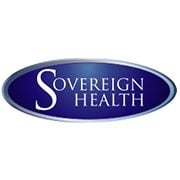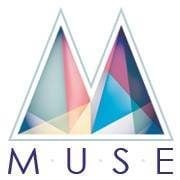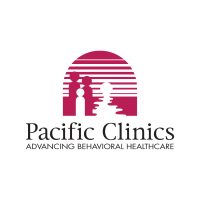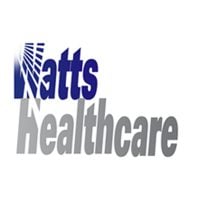AADAP - Asian American Drug Abuse Program
Drug Rehab Center in Inglewood, California
The Asian American Drug Abuse Program (AADAP) provides evidence-based treatment for opioid addiction and alcoholism in Inglewood, California, using a variety of therapies and interventions catered towards the individual needs and goals of their clients.
About This California Facility
AADAP - Asian American Drug Abuse Program is an alcoholism and opioid addiction treatment facility located in Inglewood, California. This facility is accredited by CARF (Commission on Accreditation of Rehabilitation Facilities), SAMHSA (Substance Abuse and Mental Health Services Administration), and holds a State License. AADAP offers a variety of levels of care to individuals suffering from alcoholism and opioid addiction. These levels of care include Aftercare Support, Outpatient Treatment, Intensive Outpatient Treatment, and Sober-Living / Half-Way Houses. With its reputable certifications and comprehensive treatment options, AADAP is dedicated to helping individuals overcome their substance abuse and find a path towards recovery.
At AADAP - Asian American Drug Abuse Program, individuals struggling with addiction can find a range of services tailored to their needs. They offer Aftercare Support, which focuses on providing ongoing support to individuals after completing a primary treatment program. Outpatient treatment is available, allowing individuals to attend therapy and counseling sessions while still maintaining their daily lives. Intensive Outpatient treatment is also offered, providing more structured care and support for individuals requiring a higher level of treatment. Additionally, AADAP provides Sober-Living / Half-Way Houses, creating a safe and supportive environment for individuals transitioning from treatment to independent living. With these various services, AADAP aims to provide individuals with the support and resources necessary to overcome addiction and achieve long-term recovery.
Genders
Ages
Modality
Additional
Accreditations
State License
SAMHSA

CARF
The Commission on Accreditation of Rehabilitation Facilities (CARF) is a non-profit organization that specifically accredits rehab organizations. Founded in 1966, CARF's, mission is to help service providers like rehab facilities maintain high standards of care.
Conditions and Issues Treated
Opioid abuse has become a national epidemic in the last decade. The US has one of the world’s highest rates of opioid use and abuse, as well as opioid-related deaths. Opioids are classified as Schedule II-IV controlled substances in the US due to their high potential for abuse.
Oxycodone, hydrocodone, methadone, and fentanyl are the most common Opioids and are commonly prescribed to treat pain. Tolerance to opioids develops over time, making life difficult, if not impossible, without them. Opioid users often obtain the drugs illegally. They can be drug dealers, friends, or family members who do not have valid prescriptions.
The desire for a more intense high than prescription opioids can quickly lead to heroin use. Heroin users are more prone to illness and death due to the high risk of overdose.
Many opioid addicts who seek treatment believe that the only way to overcome their addiction is through medical detox and long-term drug addiction rehab. To help patients wean off their addiction and reduce the risk of overdose, medication-assisted therapy (MAT) involves prescribing a replacement opioid. Doctors use MAT in conjunction with other anti-craving medications to help patients maintain recovery. Due to the high risk of relapse, MAT is often combined with individual and group counseling and social support programs.
Levels of Care Offered at AADAP - Asian American Drug Abuse Program
This center offers a variety of custom treatment tailored to individual recovery. Currently available are Aftercare Support, Intensive Outpatient, Outpatient, Sober-Living / Half-Way, with additional therapies available as listed below.
Intensive outpatient treatment is a form of addiction care that allows patients to continue living at home while undergoing treatment. This type of care is appropriate for patients who have been treated in residential treatment programs. Intensive outpatient programs include regular visits to the facility providing therapy, and patients gradually return to their routine life. IOP benefits most when patients have a supportive family member or friend to help them recover.
The first step to getting into an intensive outpatient program is to attend a detoxification facility. Detoxification facilities are designed to remove substances from the body safely. The patient will attend sessions designed to help them understand their addiction and its impact on their lives. While in an intensive outpatient program, therapy sessions are scheduled three to five times per week, with the patient attending no more than two sessions in one day.
An outpatient treatment program is set up to help with alcohol or drug addiction or a co-occurring disorder. The patient must attend the facility for their therapy and other programs but can return home each night.
The frequency of mandatory attendance decreases after much of AADAP - Asian American Drug Abuse Program‘s program is complete.
Outpatient treatment is a recovery approach that allows recovering addicts to live at home while getting rehab for addiction
An outpatient can include day treatments which include attending group sessions one hour per week. A person living in an outpatient environment may be allowed the opportunity to work full time if they choose to and continue studies without interruption from drugs/alcohol.
Outpatient treatment is an option for people who want to maintain their careers and families. Outpatients live at home but attend treatment such as individual counseling, group counseling, or twelve-step meetings during the day.
Sober Living Homes are used in drug rehab to help former addicts maintain sobriety. The residents are provided with a safe and supportive environment to learn how to live a sober life. They also provide them with opportunities for exercise, many of which encourage learning coping mechanisms that will be helpful later on.
Aftercare support is vital to the success of someone in drug or alcohol treatment. It involves assisting with entering a sober living home, getting career counseling or educational assistance and even getting the individual lined up with programs like AA and NA. This support helps recovering addicts readjust to normal day-to-day activities and maintain sobriety.
When a person is in drug or alcohol treatment, they have to increase their focus on themselves. They need to learn how to recognize the triggers that cause them to relapse and learn the habits that would benefit them if they were to be sober. This is all part of the growth in recovery, and aftercare is essential to that process.
Therapies & Programs
At AADAP - Asian American Drug Abuse Program , to learn from past mistakes and improve one’s situation, the recovering person meets individually with a therapist. The counselor or therapist will address addiction causes, triggers, mental issues, dual diagnosis, and aftercare plans during this time. This is a very intense and challenging process. Some clients find it easier to open up to someone other than family or friends who understand their struggles with addiction.
Family therapy is a crucial part of drug treatment and getting sober. It is one of the most effective ways to help addicts stay on the path to long-term sobriety. An addict’s family can play a vital part in helping them to avoid relapse. They can spot the warning signs and help them get back on track.
In group therapy, recovering addicts meet with a therapist and other people in recovery. Some groups are closed, meaning only people who share the same addiction or problem can attend. Others are open to anyone who wants to stop using drugs or drinking alcohol. Group therapy sessions typically focus on one topic each week or month so that recovering addicts can discuss issues they face daily.
Trauma therapy allows people to face and learn from past traumas.
Many people suffer childhood traumas that lead to adult addiction. During treatment at AADAP - Asian American Drug Abuse Program [/type], you can move forward in your recovery and reclaim your sober future! Trauma is a common cause of psychological disorders like Addiction Disorder. It’s common in Addictive Disorders patients because traumatized people have strong emotions or thoughts that lead to addictive behaviors.
Cognitive Behavioral Therapy (CBT) is based on the idea that how we feel, think and act all interact together. It helps people explore their thoughts for problems (or false beliefs) that influence their mood and actions. CBT is very goal-oriented, which means that the therapist and patient work together on a specific problem. In addition to helping a client focus on thoughts that can be changed, CBT also allows them to take an active role in their treatment. Our thoughts determine our feelings and behaviors; our feelings affect our thoughts, and our behaviors change our thoughts and feelings.
Rational Emotional Behavior Therapy (REBT) offers benefits to addicts in a wide range of situations. This type of therapy helps individuals better understand their emotions and how to manage them in a healthy way.
Individuals who have used addiction treatment services have found this type of therapy beneficial in the following ways:
- Helps individuals identify, understand and manage their emotions in a healthier way
- Assists addicts in developing coping skills to help avoid relapse
- Encourages increased tolerance and less judgmental thinking
- REBT combines cognitive and emotive techniques to help individuals overcome harmful, self-defeating behaviors.
Drug and alcohol addiction can lead to a breakdown in life skills. Learning certain life skills can help those who are struggling with addiction. Life skills training at AADAP - Asian American Drug Abuse Program in Inglewood, CA teaches patients skills such as time management, budgeting, and social abilities to improve their quality of life and prevent relapse.
An addict’s life skills are maladaptive, meaning they are counterproductive. An addict may have learned poor time management skills growing up, have a hard time budgeting money, or be socially awkward. An addict’s poor life skills can lead to relapse and the inability to achieve long-term sobriety. Life skills training teaches patients effective coping mechanisms, which can help them live a clean and sober life.
Patient Experience
Fitness Therapy
People in drug recovery can improve their physical and mental health by engaging in fitness therapy. Exercise releases feel-good chemicals and can boost self-esteem. Discipline can be practiced through an exercise regimen. Studies have shown that exercise increases abstinence rates, eases withdrawal symptoms, and improves depressive symptoms for those in addiction treatment. Fitness therapy at a rehab center can include activities like swimming or jogging to promote movement and enhance the general level of fitness of the individual.
Payment Options Accepted
For specific insurance or payment methods please contact us.
Additional Details
Specifics, location, and helpful extra information.
Inglewood, California 90302 Phone Number(323) 294-4932 Meta DetailsUpdated November 25, 2023
Staff Verified
Patient Reviews
There are no reviews yet. Be the first one to write one.
Inglewood, California Addiction Information
More than 3 million of California's citizens are addicted to illegal drugs. Almost 800,000 people use hard drugs, almost 5 million use marijuana, and another 2.1 million abuse alcohol every year. Other substance abuse issues such as binge drinking and teen drug use are also common. Many illegal drugs such as cocaine, heroin, methamphetamine, and marijuana are smuggled into the state from Mexico.
Inglewood, CA, has been struggling with drug abuse for many years. The easy access to drugs is one of the major reasons for the high addiction rate. In 2017, there were 57 reported cases of a heroin overdose and 5 fatalities. Cocaine is also a major issue in Inglewood. In 2017, there were 207 reports of cocaine possession and 13 fatalities.
Treatment in Nearby Cities
- Chula Vista, CA (117.7 mi.)
- Victorville, CA (72.3 mi.)
- Calabasas, CA (21.0 mi.)
- Lemon Grove, CA (114.3 mi.)
- Redlands, CA (67.5 mi.)
Centers near AADAP - Asian American Drug Abuse Program
The facility name, logo and brand are the property and registered trademarks of AADAP - Asian American Drug Abuse Program, and are being used for identification and informational purposes only. Use of these names, logos and brands shall not imply endorsement. RehabNow.org is not affiliated with or sponsored by AADAP - Asian American Drug Abuse Program.









